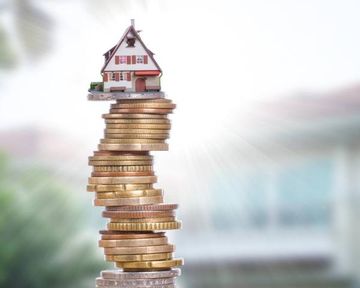What you need to know about buying versus renting a home
But before you can think about making a huge financial decision, you need to know whether or not you are ready to buy a home.
How do you know if you are ready to buy a home?
While there are many factors that can influence your decision, we take a look at five common factors you need to consider:
- Your financial situation: Buying a home requires a significant financial commitment, including the down payment, closing costs, and ongoing home loan payments. Consider whether you can afford these costs and whether your income is stable enough to support these payments.
- Your future plans: Are you planning to stay in the area for a long time, or do you anticipate moving in the next few years? If you're not planning to stay in the area for a long time, buying a home may not be the best choice for you.
- Your lifestyle: You will need to consider your lifestyle and what type of responsibilities you are ready to take on - for example, a very large responsibility of owning your own home is maintenance. Are you willing and financially able to take care of your property to ensure it maintains its value?
- Real estate market conditions: Consider the current state of the real estate market in your area. Are home prices rising or falling? Are there many homes for sale, or is inventory limited? These factors can impact your decision to buy a home.
- Other financial goals: Buying a home may impact your ability to save for other financial goals, such as retirement or education expenses. Consider how purchasing a home fits into your overall financial plan.
Once you have done this you can start looking at the pros and cons of each of your options.
What you need to consider about buying a home
Pros of buying a home:
- Investment: Buying a home is often seen as an investment. When you buy a home, you're building equity that you can use later on.
- Stability: When you own a home, you have more stability and control over your living situation. You can't be kicked out by a landlord, and you can make changes to the property as you see fit.
- Potential for rental income: If you have extra space or decide to move, you can rent out your home and earn rental income. This can be a source of passive income and a way to offset the costs of homeownership.
Cons of buying a home:
- Financial commitment: Owning a home is a significant financial commitment, including the down payment, home loan payments, property taxes, insurance, and maintenance costs. This can be overwhelming for some people.
- Lack of flexibility: When you own a home, you're committed to living in that location for a longer period. If you need to move, it can be more challenging to sell your home, and you may lose money if the value of the property decreases.
- Maintenance: Homeownership also means being responsible for maintenance and repairs, which can be expensive and time-consuming.
What you need to consider about renting a home
Pros of renting:
- Flexibility: Renting gives you the flexibility to move around and explore new places without being tied down to a particular location.
- No maintenance costs: When you rent, you don't have to worry about the cost of maintenance or repairs. Your landlord is responsible for these costs.
- Lower upfront costs: Renting often requires less money upfront than buying a home. You don't need to worry about a down payment or closing costs.
Cons of renting:
- No investment: When you rent, you're not building equity or investing in a property.
- Limited control: You can't make major changes to a rental property, and you may be subject to rules and regulations set by your landlord.
- Rent increases: Your rent may increase each year, which can make it challenging to budget for the future.
Deciding whether to buy a home is a personal decision that requires careful evaluation of various factors. It's crucial to seek advice from professionals such as a real estate agent or financial advisor to help you make an informed decision.

